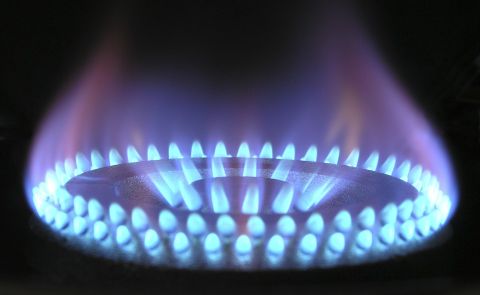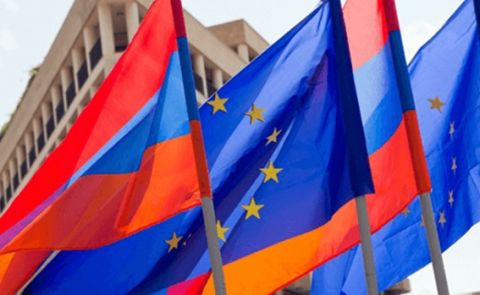
Third day of the renewed Nagorno-Karabakh war

Military developments and civilian casualties
On 29 September, the spokesperson for Armenia’s Defence Ministry Shushan Stepanyan accused Azerbaijan of using larger, more destructive weapons systems than before. In particular, she talked about the usage of the heavy artillery system TOS-1A during offensive actions in certain directions. She also added that the Armenian side may be forced to employ pieces of equipment and munitions designed to engage wide-area targets, intended for large and indiscriminate destruction of manpower, and static and mobile property alike.
The spokesperson for Armenia’s Ministry of Foreign Affairs stated that Azerbaijani armed forces have fired upon the military and civilian infrastructure of the Vardenis region, which is not a part of Nagorno-Karabakh. It was reported that one civilian died. She also denied the statements from Azerbaijan that rockets were deployed on the Dashkesan region of Azerbaijan from the Vardenis region.
The Representative of the Armenian Defence Ministry Artsrun Hovhannisyan said during a press briefing that after clarifying the information about the number of Armenian soldiers who were wounded in the fighting with Azerbaijan on September 27 and 28 in Nagorno-Karabakh, their number has decreased. “The number has decreased because when we analysed and removed from the list those who were slightly injured and continue to serve or returned to service, it turned out that the number of the wounded soldiers is approximately 100-120, down from the earlier reported 200” he said. He also claimed that Azerbaijan lost 60 servicemen during the clashes.
Meanwhile, Azerbaijan’s Mobilization and Conscription Service announced that buses with reservists are being sent from different branches of the military throughout Azerbaijan to the frontline.
The Azerbaijani Defence Ministry reported that S-300 long-range surface-to-air systems have departed from Yerevan and are heading to Nagorno-Karabakh. It emphasised that it would be destroyed immediately when it entered Nagorno-Karabakh. In addition, it was reported that since the morning hours, fighting has started for the city of Fizuli (Varanda). The Azerbaijani and Turkish MOD also denied reports from Armenia that a Turkish F-25 shot down an Su-25 aircraft belonging to the Armenian Air Force.
Azerbaijan’s Foreign Ministry and Chief Prosecutor’s Office have stated that 12 Azerbaijani civilians have been killed and 35 injured so far. There is no official data on the number of dead and wounded servicemen in Azerbaijan.
Political developments
Armenia’s Prime Minister Nikol Pashinyan had a telephone conversation with UN Secretary General Antonio Guterres and German Chancellor Angela Merkel. He spoke about the situation in Nagorno-Karabakh, stressing that Azerbaijan has declared war on the de facto Nagorno-Karabakh authorities. Pashinyan noted that, unlike the escalations of previous years, the current one is characterised by an extremely active and biased position, as well as the destabilising direct participation of Turkey in the hostilities on Azerbaijan's side. Both Merkel and Guterres expressed their deep concern about the situation. They noted that the peaceful settlement of the Nagorno-Karabakh conflict has no alternative and stressed the need to resume the peace process within the framework of the OSCE Minsk Group.
While talking to journalists, Armenia’s Foreign Minister Zohrab Mnatsakanyan stated that Turkey's intervention in the conflict is a big risk that will become a complete disaster for the entire region. According to him, if this happens, Armenia will have nothing left but to fight face to face against the enemy. When asked about whether Russia is now supplying weapons to Armenia, Mnatsaknyan responded: “We are doing everything to ensure complete security for Nagorno-Karabakh” and added that Armenia relies on Russia and on all its other partners with whom it cooperates in the field of defence.
Azerbaijan’s President Ilham Aliyev also held phone call with Angela Merkel and Antonio Guterres. He said that Armenia committed a military provocation against Azerbaijan on 27 September and shelled military units, towns, and Azerbaijan villages along the contact line, using heavy artillery. He emphasised that Pashinyan’s statement that "Karabakh is Armenia, full stop" made the negotiation process senseless. He added that the Armenian Defence Minister David Tonoyan threatened Azerbaijan with a new war for new territories, adding that this plan was being implemented. Aliyev also said that Armenia was conducting a policy of illegal settlement of foreign citizens in Azerbaijan's occupied territories, which is a gross violation of international law under the Geneva Convention, adding that it is considered a war crime. During the telephone conversation, the sides also discussed possibilities to restore the ceasefire and the negotiation process.
Azerbaijan’s MFA issued a statement in response to the press-release from the European Court of Human Rights published on 28 September 2020. The Court’s statement concerned Armenia’s request lodged with the Court on taking interim measures against Azerbaijan as well as information shared by the Head of the Communication Department of the Council of Europe about forthcoming consideration of this request by the Court. The MFA stated that all of Azerbaijan’s actions were in accordance with international humanitarian law for counter operations conducted within the right to self-defence to prevent another military aggression by Armenia and protect the civilian population residing along the frontline.
International reactions
Kremlin spokesperson Dmitry Peskov condemned statements “about military support or action” in the ongoing hostilities between Armenia and Azerbaijan stating that they ‘add fuel to the flames.’ He was responding to an inquiry over Russia’s possible intention to help Armenia militarily within the framework of the Collective Security Treaty Organization (CSTO). “The Kremlin, above all, is guided by the need for an immediate ceasefire and the end of hostilities,” he answered. Peskov’s comment followed the claim by Turkish Foreign Minister Mevlut Cavusoglu who said earlier today that Turkey was ready to ‘support Azerbaijan both at the negotiating table and on the field of battle.’
The chairman of Russia’s State Duma's Committee on Eurasian Integration and Relations with Compatriots Leonid Kalashnikov stated that the processes which were entrusted to the OSCE, such as the return of the occupied territories and the return of IDPs, the status of Nagorno-Karabakh and other issues, were now “buried” and that the Karabakh negotiations should start anew.
The US Secretary of State Mike Pompeo said while meeting his counterpart Nikos Dendias in Greece that they discussed the conflict in Nagorno-Karabakh, ‘where both sides need to stop the violence and work with the Minsk Group co-chairs and return to substantive negotiations as quickly as possible’.
The French government said that it would call for talks among the Minsk Group to try to resolve the conflict. “We will trigger in the coming days a coordination of the Minsk Group to clear up what happened, who is responsible and find a way out,” Reuters cited an official from the office of the French President Emmanuel Macron.
It was also reported that Cavusoglu held a phone conversation with the German Foreign Minister Heiko Maas to discuss the latest developments in the conflict.
The spokesperson of Iran’s government Ali Rabii stated that the country’s position regarding the conflict is clear and that the Iranian government has stressed Azerbaijan's legal right within the framework of UN resolutions and international law many times. He also noted that Iran is watching events in the occupied territories of Azerbaijan with attention and concern: "It is possible to solve the conflict between two neighbouring countries Azerbaijan and Armenia peacefully. Iran, Turkey, and Russia can help both countries in the field of execution of the resolutions of the UN Security Council and solution of disagreements," he said.
The Parliamentary Assembly of the Council of Europe (PACE) expressed its concern over the military hostilities. “We urge both parties to immediately cease armed hostilities, to de-escalate the situation and to return to the negotiating table in the Minsk Group format. In addition, we urge all other Council of Europe Member States to refrain from any actions or discourse that could contribute to the tension and instability in this volatile region. We reiterate that there is no alternative to a peaceful solution to the Nagorno-Karabakh conflict,” the statement read.
UN High Commissioner for Human Rights Michelle Bachelet made a statement on the latest developments in the conflict. “I am concerned about the resumption of hostilities along the line of contact in the Nagorno-Karabakh conflict zone and urge an immediate end to the fighting. I am deeply disturbed by the reported loss of civilian lives and injuries, as well as damage to civilian property and infrastructure,” she said. “I call on all sides to respect international human rights law and international humanitarian law, in particular by ensuring the protection of the civilian population and people placed hors de combat, and by preventing damage to essential civilian infrastructure,” she added.
It should be noted that the UN Security Council and the OSCE Permanent Council will be holding emergency meetings to discuss the conflict.
See Also

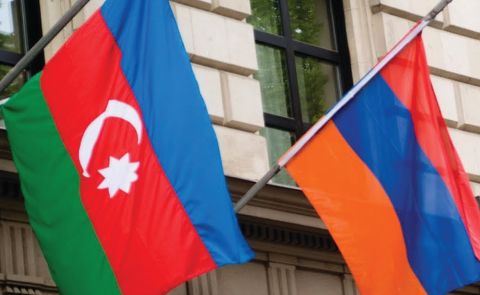
Armenia Reaffirms Peace Deal Readiness, Criticizes Azerbaijan's Preconditions

ING's Forecast for Azerbaijan Highlights Oil Price Risks and Gold Export Opportunities
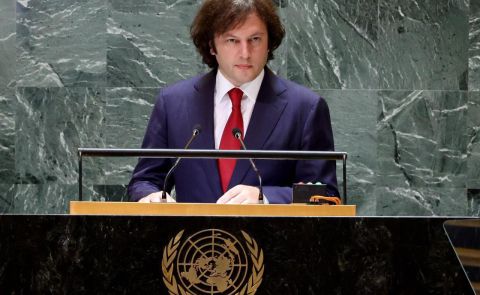
Georgian PM to Attend European Political Community Summit
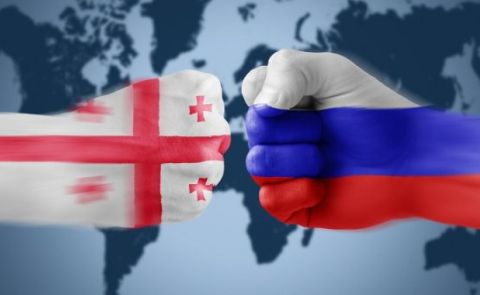
Putin Urges Georgia to Uphold Friendship Traditions, Signature Collection Begins in Tbilisi to Restore Ties
